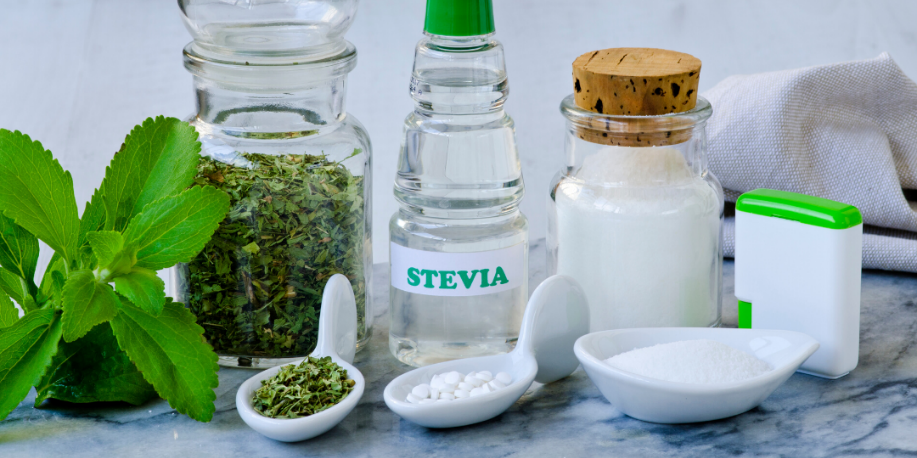LOW CALORIE SWEETENER CONSUMPTION WHILE PREGNANT CAN INCREASE BABY’S RISK OF BODY FAT AND DISRUPT THEIR MICROBIOME
LOW CALORIE SWEETENER CONSUMPTION WHILE PREGNANT CAN INCREASE BABY’S RISK OF BODY FAT AND DISRUPT THEIR MICROBIOME
Check out this article in Science Daily describing a new study published in the journal Gut that “discovered that the consumption of low-calorie sweeteners while pregnant increased body fat in their offspring and disrupted their gut microbiota — the trillions of bacteria and other microorganisms that inhabit the intestinal tract and affect our health and risk of numerous diseases.”
ScienceDaily: Low-calorie sweeteners do not mean low risk for infants
Although this study was performed on rats and not humans, “the findings are significant as they impact the critical early years of life, particularly during pregnancy and breast feeding.
“Low-calorie sweeteners are considered safe to consume during pregnancy and lactation, however evidence is emerging from human studies to suggest they may increase body weight and other cardiovascular risk factors,” says Reimer, a University of Calgary professor in the Faculty of Kinesiology, and Department of Biochemistry & Molecular Biology at the Cumming School of Medicine , and member of the Alberta Children’s Research Institute.
“Even stevia, which is hailed as a natural alternative to aspartame and other low calorie artificial sweeteners, showed a similar impact on increasing offspring obesity risk in early life.”
“In response to higher obesity rates, the use of low-calorie sweeteners has risen, particularly in women and children. Daily consumption is associated with large babies and early menstruation in young females under 10 years — a known risk factor for chronic diseases. Additionally, the presence of some but not all of these sweeteners has been detected in breastmilk presenting a potential mode of transmission, according to the study.
“Understanding the impact of dietary ingredients on maternal metabolism and gut microbiota may help to define the optimal maternal diet, one which promotes a healthier future for both mother and child,” says Reimer.”
“Our understanding of how sweeteners affect weight gain is not complete but there is reason to believe that alterations in the gut microbiota may play a key role. In this animal study, a fecal transplant was used to show the direct influence of altered gut microbiota on causing the increased obesity risk. Transplanting fecal matter from the offspring of mothers that consumed the low-calorie sweeteners into sterile, germ free mice caused the mice to gain more weight and have worse blood glucose control. Even though the offspring had never consumed the sweeteners themselves, the changes to mom’s microbiota and metabolism was sufficient to change the microbiota in their offspring and trigger obesity.
“A healthy pregnancy, including good nutrition, is important for a healthy baby,” says Reimer. “Our research will continue to examine what makes an optimal diet and more importantly seek to find ways to correct disruptions to gut microbiota should they occur.”
If you or someone you know would like to get on the road to healthier eating and learn how powerful food as medicine can be, please contact us today. We have a fantastic team including a registered dietitian, nurse practitioner, and behavioral counselor here to help support the use of whole foods in your diet, investigate laboratory abnormalities, and help you develop lifelong habits for improving your health and optimizing the state of your gut microbiome. Call us at 224.407.4400 or visit our website www.compgihealth.com to request an appointment with any of our providers to get started! TELEMEDICINE visits are available now!

